Member institutes
%20(3)%202018-12%20EurAqua_europa.png)
Austria: The Federal Agency for Water Management in Austria (BAW)
BAW is a subordinated office of the Federal Ministry of Agriculture, Forestry, Environment and Water Management. It works as an advisory board for the Ministry in charge of water management, federal states and private companies. BWA's major activities include water quality assessment, fishery and river ecology, soil and water management for the preservation of the groundwater resources, hydraulic engineering and ecotoxicology. BAW has more than 90 members of staff including 12 research scientists, mainly working on freshwater topics, as well as 5 PhD students.
Primary contact: Johann DOPPELBAUER
Belgium: InterUniversity Programme in Water Resources Engineering in Belgium (IUPWARE)
IUPWARE emerged from the integration of two post-graduate programmes the IUP in Irrigation Engineering of the University of Leuven (K.U. Leuven), organised by the Institute for Land and Water Management and the Department of Hydraulics, and the IUP in Hydrology of the Free University of Brussels (V.U. Brussel), organized by the Department of Hydrology and Hydraulic Engineering. The number of total permanent staff is about 50. There are currently 20 PhD students. IUPWARE has active links with Belgian networks, such as the Belgian National Committee of the International Hydrological Programme and the Flanders Water Network.
Primary contact: Ann VAN GRIENSVEN
Croatia: University of Zagreb - Faculty of Civil Engineering (UNIZG-FCE)
UNIZG-FCE is the oldest civil engineering faculty in Croatia and conducts education at an undergraduate, graduate and PhD level in all branches of civil engineering. It comprises 9 departments and 4 research laboratories and currently employs 140 scientific staff members. UNIZG-FCE is continually developing and advancing higher education, scientific research activities and overall education, and actively participates in the development of the civil engineering profession and implementation of new technologies. Our objectives are expansion of cooperation with related institutions along with participation in joint research projects with partners from EU countries and the region, and also to further strengthen ties with the commercial sector. We aim in becoming one of the regional centres of excellence as well as a "cooperation bridge” for countries of the European Union and the region.
Primary contact: Damir BEKIC

Czech Republic: T.G. Masaryk Water Research Institute
The T.G. Masaryk Water Research Institute (TGM WRI) is the direct continuator of the State Hydrological Institute, set up in 1919, on the basis of a high scientific level, national interest and the political attention traditionally devoted to managing and treating water in the Czech Republic. Depending on the transformation of technical knowledge and its ties with the state, the institute´s organisation, activities and name were changed several times. Currently the TGM WRI is a public research institution established by the Ministry of Environment of the CzechRepublic. Its scope of work consists in research, conceptual, professional and methodological activities, including of forming and operating information systems, further in protecting the quality and amount of surface and ground waters, and in their usage in technical, economic and other relations and interactions. Preferentially, the Institute provides public administration with objective and professional services, in particular for creating and implementing state policies in the water area with regards to the Water Act. As concerns research, professional and methodological operations, the activities of the Institute have been expanded by creating information subsystems for the state administration's performance in the sphere of waste treatment, and an integrated approach to the prevention of environmental pollution.
Primary contact: Premysl SOLDAN
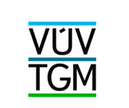
Denmark: Danish Centre for Environment and Energy (DCE)
DCE is Aarhus University’s central unit for knowledge exchange within the areas of nature, environment, climate and energy. DCE delivers science-based advice and solutions that help greening of the economy and promote sustainable growth at
both local, national and international scale.
Among our customers are the Danish Ministry of the Environment, the Danish Ministry of Climate and Energy, Greenland's Government, the Danish municipalities, private businesses and the European Commission.
DCE - Danish Centre for Environment and Energy has been reorganized from the former National Environmental Research Institute (NERI) which was closed on 30 June 2011. The research departments of the old NERI are now divided between the Department of Bioscience and the Department of Environmental Science.
Primay contact: Signe JUNG_MADSEN

Estonia: Technical University of Tallinn, TUT
Tallinn University of Technology (TUT) is one of the largest universities in Estonia, providing interdisciplinary higher education. The university is also the main research centre of technical, social and economic sciences in Estonia. The Institute of Environmental Engineering (IEE) at TUT performs research concerning the processes that determe surface water quality and it their spatial and temporal variability, formation and transformation of nutrient loads, purification of municipal and industrial wastewaters, treatment of municipal solid waste landfill leaches, handling and re-use of sludge, impacts of climate change on hydrological regimes and surface water quantity and water quality including eutrophication. The IEE is responsible for and coordinates the national surface water quality monitoring programme and has been a partner of several international projects including EU FP4, FP5, FP6 projects. In recent years IEE has had a major role in Estonia in research activities in support of the Water Framework Directive. The institute is Responsible Executive in Estonia of the HELCOM PLC-programme. The IEE participates actively in transboudary water bodies protection issues.
Primary contact: Alvina REIHAN

Finland: The Finnish Environment Institute (SYKE)
The Finnish Environment Institute (SYKE) is a governmental research and development institute. The tasks of SYKE include research and monitoring of the state and pressures of the environment and water resources, as well as possible ways to mitigate the problems and restore the environment. The institute, moreover, develops and applies environmental models and decision support systems to guide the use and protection of natural resources. SYKE is an independent R&D body which due to its historical role has close liaisons with environmental authorities, and related experience of environmental policy and its implementation. SYKE employs nearly 600 people, of whom more than 370 with a university degree. SYKE has a Research Department of about 180 scientists divided into 7 research programmes covering both natural sciences and environmental social sciences.
Primay contact: Anna-Stiina HEISKANEN
%20(2)%20Syke_tunnus_FI_EN_SV_RGB.png)
France: INRAE - National Research Institute for Agriculture, Food and Environment
As the result of the merger of INRA and IRSTEA, INRAE is France's National Research Institute for Agriculture, Food and Environment. Its mission is to carry out excellent science in order to provide innovative solutions addressing global challenges, notably climate change, biodiversity and food security while at the same time enabling the much needed agroecological, nutritional and energy transitions. This research also serves policy making from regional to international levels, thereby contributing to the Sustainable Development Goals.
Thanks to its diverse research teams, INRAE produces targeted research, via a process in which basic science and applied science go hand in hand and discipline-specific perspectives are paired with interdisciplinary approaches. In this work, it can rely on a network of research infrastructures and experimental research units that has no equal in Europe. INRAE is fully committed to the principles of open science. It also embraces participatory science as a means of engaging with greater numbers of everyday citizens.
Primary contact: Louise VAAST

Germany: The Federal Institute of Hydrology in Germany (BfG)
Within the federal system of Germany, responsibilities for waters are divided between national authorities and those of the federal states. As a scientific institution ranking as a supreme federal agency, the Federal Institute of Hydrology (BfG) is responsible for the German waterways in federal ownership. In this position, it has a central mediating and integrating function. The BfG advises the federal ministries (e.g. the Federal Ministry of Transport, Building and Urban Development (BMVBS) and the Federal Ministry for the Environment, Nature Conservation and Nuclear Safety, BMU) in matters of utilisation and management of the waterways with an expertise that is unique in Germany — anchored in its three divisions “Quantitative Hydrology, “Qualitative Hydrology", and “Ecology".
Primary contact: Volker HÜSING
Greece: The National Technical University of Athens in Greece (NTUA)
The Department of Water Recources, Hydraulic and Maritime Engineering of the Faculty of Civil Engineering of the N.T.U.A was established in 1982. It has 35 staff members (20 faculty members holding doctorate degrees) and 30 scientists working as post-doctoral researchers. There are four laboratories within the Department: the Laboratory of Applied Hydraulics, Harbour Works, Sanitary Engineering and of Hydrology and Water Resources. The Department undertakes basic and applied research in the field of aquatic environment and related civil engineering works.
Primary contact: Evangelos BALTAS
Iceland: Icelandic Meteorological Office (IMO)
The Icelandic Meteorological Office (IMO) is a public institution under the auspices of the Ministry for the Environment and Natural Resources, historically based on the Icelandic Meteorological Office (1920) and the Icelandic Hydrological Survey (1948). The two institutions merged in 2009, with the responsibility of monitoring natural hazards in Iceland and conducting research in related fields, as well as participating in international monitoring and research. IMO has a staff of 130 people, of which 60 staff members work on research-related activities.
The main purpose of IMO is to contribute towards increased security and efficiency in society by:
- Monitoring, analyzing, interpreting, informing, giving advice and counsel, providing warnings and forecasts and where possible, predicting natural processes and natural hazards;
- issuing public and aviation alerts about impending natural hazards, such as volcanic ash, extreme weather and flooding;
- conducting research on the physics of air, land and sea, specifically in the fields of meteorology, hydrology, glaciology, climatology, seismology and volcanology;
- maintaining high quality service and efficiency in providing information in the interest of economy, of security affairs, of sustainable usage of natural resources and with regard to other needs of the public;
- ensuring the accumulation and preservation of data and knowledge regarding the long-term development of natural processes such as climate, glacier changes, crustal movements and other environmental matters that fall under IMO‘s responsibility.
Primary contact: Jórunn HARÐARDÓTTIR

Ireland: Dublin Institute of Technology
The Dublin Institute of Technology (DIT) is now one of Ireland’s largest and most innovative university-level institutions (i.e. 22,000+ students). Research in DIT is delivered through Research Institutes and Centres including the Environmental Sustainability & Health Institute (ESHI) which provides the main focus for environment and health-related research at DIT (www.dit.ie/eshi/). It is an all-island, dedicated national translational research platform building capacity and capability, developing evidence based interventions to address environmental health challenges. By integrating scientific and technical expertise with policy and regulatory capability in addition to relevant government agencies and practitioners ESHI is bridging the science-policy gap. ESHI is co-located with DIT’s commercialisation office in state-of-the-art facilities in the new Grangegorman campus (Dublin).
The Water Innovation Research Centre (WIRC) is part of ESHI and brings together researchers from across a wide range of disciplines to harness research capacity and drive new initiatives in water related research (www.dit.ie/eshi/water/). The WIRC is developing a critical mass of interdisciplinary research specialists (e.g. 20 principal investigators and a team of Postdoctoral and PhD researchers) engaged in academic research with the professional knowledge and expertise to generate collective responses to challenges of water related environmental sustainability and health. Research at the WIRC addresses a range of key thematic areas including, catchment management, water infrastructure, wastewater treatment (incl. nature based solutions), drinking water supply, novel technologies, water policy and systems modelling. This research drive uses a problem-centred, community-based approach to develop innovative solutions to water challenges and inform policy.
Primary contact: Alan GILMER
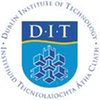
Italy: The Water Research Institute in Italy (IRSA)
The "Istituto di Ricerca sulle Acque", an operative body of the Italian National Research Council (CNR), is a scientific institution aiming at supplying public authorities with the information required for the rational utilisation and protection of Italian water resources. IRSA's members of staff, almost entirely dedicated to inland water problems, consists of about 150 people (both permanent and temporary), of whom 60% hold an advanced university degree.
Primary contact: Antonio LO PORTO
Latvia: University of Latvia, Faculty of Geographical and earth sciences
The University of Latvia, Faculty of Geographical and Earth sciences, was founded in 1944. At the present faculty covers three study lines (geography, geology and environmental science) providing education on four levels (Bachelor, Master of Science, PhD, as well as teacher qualification study programs). The total number of students: 750 staff of the faculty, including research personnel 75 total number of research papers per year 140. Faculty staff participates in around 30 national projects and several EU funded projects. The faculty covers research in the same directions, with the strongest research teams in biogeography, quaternary geology, geomorphology, environmental chemistry, landscape ecology, climatology and others. The faculty does have capacities to do research in the field of water quality modelling.
Primary contact: Maris KLAVINS
Lithuania: Lithuanian Energy Institute (LEI)
LEI was established in 1956. The Institute has the status of a state science institution. It is a technical research centre dealing with the evaluation of the influence of the energy sector on water bodies, with energy-related research in thermal physics and fluid mechanics, and with nuclear safety issues. LEI comprises 10 research laboratories with a staff of 300. The Laboratory of Hydrology of LEI has great experience in investigations of the physical-geographical conditions influencing river runoff and the evaluation of the impact of human activities on the status of water bodies. LEI has participated in major national and international hydrological research projects. The Laboratory of Hydrology closely cooperates with Lithuanian and foreign universities. The Laboratory of Hydrology has joint PhD programmes with Kaunas University of Technology. In accordance with agreements between the Ministry of Environment of Lithuania and LEI, the Laboratory of Hydrology provides expertise in the preparation of plans, programmes and projects are prepared by laboratory of Hydrology.
Primary contact: Jurate KRIAUCIUNIENE
Malta: The Energy & Water Agency
The Energy and Water Agency is a Government Agency established via LN 340/2016 within the Ministry for Energy and Water Management. Set up in 2014 the Agency is tasked with formulating and implementing Government’s national policies in the energy and water sectors, aimed at ensuring security, sustainability and affordability of energy and water in Malta.
The Agency dedicates a significant share of its resources to the annual execution of planned budgetary and manifesto measures, together with the carrying out of the respective EU Acquis. This means the implementation of legislation and policies related to renewable energy, energy efficiency, electricity and gas security of supply, the internal energy market, water demand management and sustainability of the water supply-base.
Primary contact: Michael SCHEMBRI
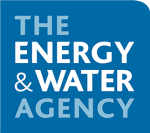
Netherlands: Deltares
Deltares is an independent Dutch institute for delta technology.
It is a combination of WL | Delft Hydraulics, GeoDelft, parts of Rijkswaterstaat /DWW, RIKZ and RIZA, and a part of TNO Built Environment and Geosciences. The institute combines knowledge and experience in the fields of water, soil and the subsurface. It is the front-runner in the development, integration, distribution and application of knowledge for meeting the challenges in the physical planning, design and management of vulnerable deltas, coastal areas and river basins. The integrated approach allows Deltares to come up with innovative solutions. This approach is called "delta technology". Deltares stands for the right balance between consultancy and research at both the national and international levels. Deltares works for and cooperates with the Dutch national government, provincial authorities and water boards, international governments, research institutes and market parties. The institute employs more than 800 people and is located in two cities: Delft and Utrecht.
Primary contact: Michiel Blind
%20(2)%20Deltares_logo_D-blauw_RGB.jpg)
Norway: The Norwegian Institute for Water Research (NIVA)
NIVA is an independent research foundation. Interdisciplinary work is performed within the major-research areas: Marine and Freshwater Ecology, Water resources Management, Environmental Technology and Chemical and Biological Analyses. NIVAs experience in freshwater research is in particular connected to: eutrophication, micropollutants, acid rain, water regulation, climate change and ecotoxicology. NIVA is also the major operator of national monitoring programmes. NIVA has 200 employees of which 90 are scientists. About 2/3 are connected to freshwater activities. Annually NIVA has full or part time PhD students.
Primary contact: Sindre LANGAAS
Poland: Institute of Meteorology and Water Management – National Research Institute (IMGW-PIB)
The Institute of Meteorology and Water Management (IMGW PIB) is a national research institution established in 1919. The main statutory activity of the Institute is to monitor current state and predict future changes of the atmosphere as well as hydrosphere to protect the society, support the economy and advise the administration through knowledge and services that will help to minimize risks of extreme events and take advantage of the opportunities arising from understanding possible future scenarios. The institute has been engaged in research and development in the field of meteorology, climatology, hydrology, water management and environmental protection as well as actively implementing new solutions, technology and infrastructure. Currently IMGW PIB employs over 1400 specialists and experts, operates more than 2000 measuring stations including meteorological and hydrological stations, 3 areological stations, 8 meteorological radars, 12 lighting detection stations, marine research vessel Baltica.
Primary contact: Wiwiana SZALINSKA
%20(2)%20IMGW-new.png)
Portugal: Laboratório Nacional de Engenharia Civil in Portugal (LNEC)
The "LNEC" is a staterun institution of science and technology under the Ministry of Public Works, Transports and Communications, and it is the most important Portuguese research institute in the field of civil engineering, established in 1947, with an important activity in Portugal and abroad. Within the Hydraulics Department, one of the operative departments, the research activity is carried out in the field of water, both where water resources themselves and hydraulic works are concerned. It includes hydrology and river hydraulics, groundwater, hydraulic structures, estuaries and coastal zones, maritime works, water supply, wastewater and storm water drainage, environment and hydro-informatics. From a total staff of 110 there are 60 researchers of whom 40 are involved in freshwater.
Primary contact: Elsa ALVES
GeoEcoMar is an R&D institute established in 1993, under the co-ordination of the Romanian Ministry of Research, focusing on the complex interactions of the Danube River - Delta - Black Sea macrosystem. GeoEcoMar represents the focal point for national excellence in research and consultancy on marine, coastal, river and lacustrine geology, geophysics and geoecology, and is a reference centre for Marine and Earth Sciences. The institute started cooperating internationally in the early 1990s with the first environmental assessment of the Danube River – Delta, under the coordination of the Cousteau Team, and has actively participated in the Framework Programmes (FP) of the European Union since FP4. First EC DG R&I funded project coordination: FP5 “Euro-EcoGeoCentre Romania”; overall coordination also for FP7 DANCERS and H2020 DANUBIUS-PP. Currently involved in 8 H2020 research projects. Participation also in Integrated Action projects (EUROFLEETS, HYDRALAB networks, EMSO DEV and EMSO Link projects – related to EMSO ERIC. Present also in other projects funded by DG REGIO, DG ENV and DG MARE. GeoEcoMar has also been involved in major projects funded by the United Nations and IAEA Programmes for the Black Sea. The Institute has participated in numerous bilateral co-operation projects and in consultancy contracts with major private companies and administrations, performing environmental studies and dedicated works for resources in the Danube – Delta – Black Sea. Overall coordination of the ESFRI Project DANUBIUS-RI (International Centre for Advanced Studies on River-Sea Systems).
Primary contact: Dan VASILIU
Slovakia: Slovak Hydrometeorological Institute, SHMU
The Slovak Hydrometeorological Institute (SHMÚ) is a state contributory organisation established with effects from January 1, 1969 - amendment made by the decision of the Minister of the Environment of the Slovak Republic from 12 June 2006 No 23/2006 — 1.6. issued pursuant to the Law No 523/2004 Coll. on budgetary rules of the Slovak Republic and amendments to other acts. It falls under the Ministry of the Environment of the Slovak Republic. As a hydrometeorological service SHMÚ support the state administration of the Slovak Republic in the fields of the air, water, and climate, focusing on monitoring and assessment activities. SHMÚ carries out a comprehensive set of operational, research and development activities and plays an important support role in policy making strategies and standard setting activities. SHMÚ is a member of several international organisations (WMO, EUMETSAT, IAHS, UNECE, (Water Concention)etc.) and takes part on the activities of such of them as WMO, EUMETSAT, IAHS, UNECE (Water Convention), etc.) and takes part in some of the activities therein. SHMÚ participates in the Danube River Basin monitoring programme, a research activity carried out under the ICPDR Convention. SHMÚ is fully involved in implementation activities of EU water-related directives in the Slovak Republic, e.g. Water Framework Directive, Directive on the Assessment and Management of Flood Risk, Directive on Dangerous Substances, IPPC Directive, etc.
Primary contact: Lotta BLAŠKOVIČOVÁ

Slovenia: University of Ljubljana (UNI LJ Sl)
Despite the early beginnings of academic education in Slovenia, the University of Ljubljana was not formally established until 1911. The number of faculties and colleges has considerably increased over years. At present, the University comprises 20 faculties, 3 academies of arts and 3 university colleges. It is the biggest university in the Republic of Slovenia. The University of Ljubljana has nearly 50000 students, more than 5000 employees and 1800 teachers. The University also offers a wide selection of postgraduate studies, with MSc and PhD degrees offered in over 250 fields. The University departments collaborate closely with various research institutes, where both students and university professors are engaged in research. Also, the University introduced the University Post-graduate Study Program in Environmental Protection, which involves 13 faculties working in the fiels of natural sciences, social sciences and humanities, technical sciences and medicine. The program is partly carried out in collaboration with researchers form several institutions, who have qualified as university teachers at the University of Ljubljana, and teachers from universities abroad, who have partly been involved in the university's work on the basis of international contracts and programs.
Primary contact: Mitja BRILLY
Spain: The Spanish Center for Public Works Research and Studies (CEDEX)
The "Centro de Estudios y Experimentación de Obras Públicas" is an autonomous national research and technical consultancy institute. Its activity covers all the civil engineering fields. Within the field of freshwater research, CEDEX's work focuses on hydraulics, hydrology, hydrometry, databases, erosion and sedimentology, water resources planning, hydroinformatics, water quality, hydraulic works design, water treatment, sewage treatment, desalination and irrigation CEDEX participates in teaching activities at both the national and international scale. CEDEXs staff of 860 includes 306 scientists of whom 85 are involved in freshwater.
Primary contact: María Isabel BERGA CANO
Sweden: Swedish Environmental Research Institute (IVL)
IVL is Sweden's leading environmental research organisation. Financed by the Government and the industry, IVL undertakes environmental research and provides impartial environmental decision support. IVL also undertakes contract work for rapid practical application of research results. Sustainable solutions for today's and tomorrow's environmental problems require comprehensive understanding founded on interdisciplinary cooperation between scientists and professionals from different disciplines. For more than 40 years, IVL has carried out research and consultancy services in cooperation with both national and overseas universities, technical institutes, private companies and other organisations. IVL has 170 staff members of whom 80 deal with aquatic issues.
Primary contact: Johanna STADMARK
United Kingdom: Centre for Ecology & Hydrology in the United Kingdom (CEH)
The Centre for Ecology and Hydrology (CEH) is one of the Centres and Surveys of the Natural Environment Research Council (NERC). CEH is the leading UK body for research, survey, and monitoring in terrestrial and freshwater environments and operates on a national and international scale, working with academia, governments, and industry. CEH has 500 scientific staff, and well-equipped laboratories and field facilities at nine sites throughout the United Kingdom.
Primary contact: Alan JENKINS
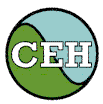




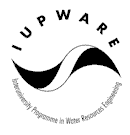


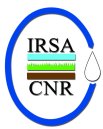




%20GeoEcoMar%20logo-over.gif)


